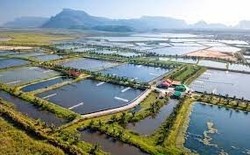
Why the EU-Thailand Free Trade Agreement should include seafood sustainability improvements?
Editor/Mohamed Shihab
In a yearly average between 2020 and 2022, the EU imported 39,644 tonnes of fishery and aquaculture products from Thailand for €13 million, while exporting 18,153 tonnes valued at €37 million. The main product imported into the EU from Thailand is prepared and preserved fish, of which canned and preserved tuna represents the majority of the volume.
The MAC is composed of organisations representing the entire value chain (primary producers, processors, traders, suppliers, retailers and trade unions and other interest groups (environmental and development NGOs). According to MAC members, the European Commission should:
-Guarantee policy consistency on the fight against illegal, unreported and unregulated (IUU) fishing and against forced labour, including through the introduction of clear provisions on the three pillars of sustainability and international governance, explicit references to the relevant International Labour Organisation’s conventions, and use of all tools available under EU law.
-Take into account ongoing legislative developments in Thailand and the potential rollback of standards concerning the fight against IUU fishing and against forced labour.
-Identify canned tuna and tuna loin products as “sensitive”, keeping in mind the competitiveness of the Thai industry, the differences in sustainability standards, and the potential negative economic and employment effects.
-Incorporate the EU’s preferential rules of origin, as derived from the Customs Code.
As Pierre Commère, chair of Working Group 2 (EU Markets), highlighted in a press release: “Thailand is a highly competitive country in the fisheries and aquaculture sector. Therefore, the European Commission must account for potential impacts of a FTA on the competitive balance, the economy, and on employment. This is specially the case on the tuna sector for which a high degree of sensitivity has been identified in terms of defensive interest of the EU sector. Further, an ambitious FTA should incorporate clear provisions on the sustainable management of living marine resources and aquaculture products, on the fight against IUU fishing, and on decent labour”.


ساحة النقاش